Food fight…
While I like to think of myself as a lover (not a fighter) this week has definitely brought out the inner warrior in me.
As mentioned last post, farmers in Queensland (Australia) are facing uncertain futures with current laws being ‘amended’ in the near future, affecting how we can ‘manage vegetation’ (if this is a new phrase for you, please check here for explanation). If they pass in Parliament, this will actually bring to 38 the number of amendments these laws have seen in past 20 years. No wonder farmers have no idea if they are coming or going!
Anyway, I called on all my bureaucratic experience (years from my days as media liaison and media advisor for the Queensland government in the late 90’s/early noughties) and wrote a submission to the (ready for it?) …
‘State Development, Natural Resources and Agricultural Industry Development Committee for the Vegetation Management and Other Legislation Amendment Bill 2018’ (or as I like to refer to it: SDNRAIDC4VMOLAB18. So much more succinct!).
Basically, this committee is a team of six politicians (from both parties) who have been rounded up by the Qld Government to plough through around 16,000 submissions, including mine…actually I doubt they are reading 16,000 submission – some poor bureaucrats who drew the short straw will be weeding them out! This team have also been sent (at pretty short notice) on a whirlwind trip around the state to ‘consult’ with stakeholders at five locations over three days. (Check out the itenerary here.)
Naturally, most farmers and industry groups saw this as the only chance they might have to get their voices heard – so hundreds and hundreds of them travelled huge distances (I am guesstimating a grand total of 700,000+km) to speak and rally. It’s pretty rare that you will see an Aussie farmer protest – most are just too damned busy, and REALLY don’t particularly like drawing attention to themselves. They are not practiced in the way of war cries and street marches. Precious few have ever made a placard, let alone bandied one about in front of a television crew for the world to see.
That changed this week.
And I was amongst them. Initially I just thought I would stand with the crowd and show my support.
But after fielding several requests for ‘plain English’ explanations of the situation from my city mates last week, and having the resulting Facebook post go a bit viral (550 shares and counting) I decided to stick my neck out and apply to address the committee myself.
As I was whipping up a few placards (wrestling with printouts and big sticky-boards in my motel room the night before the first of the hearings at Rockhampton) I discovered that I would be among those formally addressing the committee (and being questioned by them) the following morning. No-one actually informed me – I found out via the government website (here). I had just 12 hours to prepare (and sleep)! Naturally I didn’t do much of the latter!
Now while I don’t mind working with the written word…
I am less than confident when it comes to public speaking. I was a bundle of nerves…
On arriving at the venue (CQLX, the cattle selling complex at Gracemere) the next morning, I shared my placards with others in the growing crowds…
This darling little future farmer helped bring support from passing motorists outside the venue.
Her Mama (and fabulous fellow bush blogger Ainsley MacArthur) grabbed another of my placards (centre).
And on the side of the highway outside CQLX, the numbers grew…
And grew…
With placards ranging from the bitingly humorous (referencing our cricket team above)…
To the downright furious…
And Agforce Queensland reps rallied those gathered…
Along with those new to the industry…
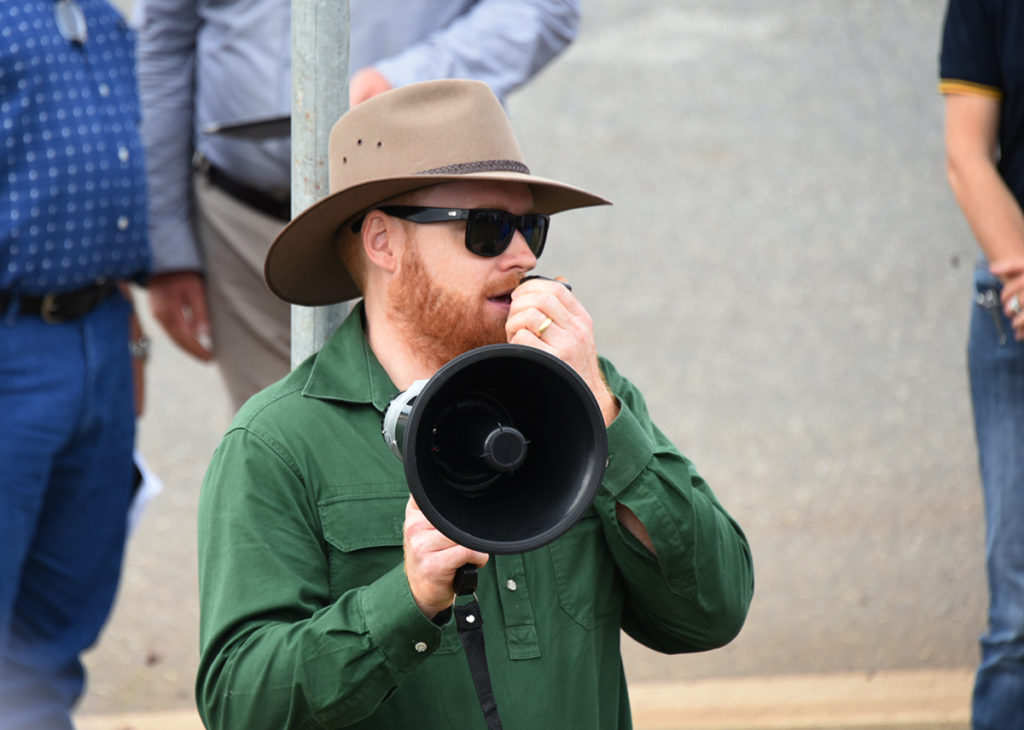
And the media gathered…
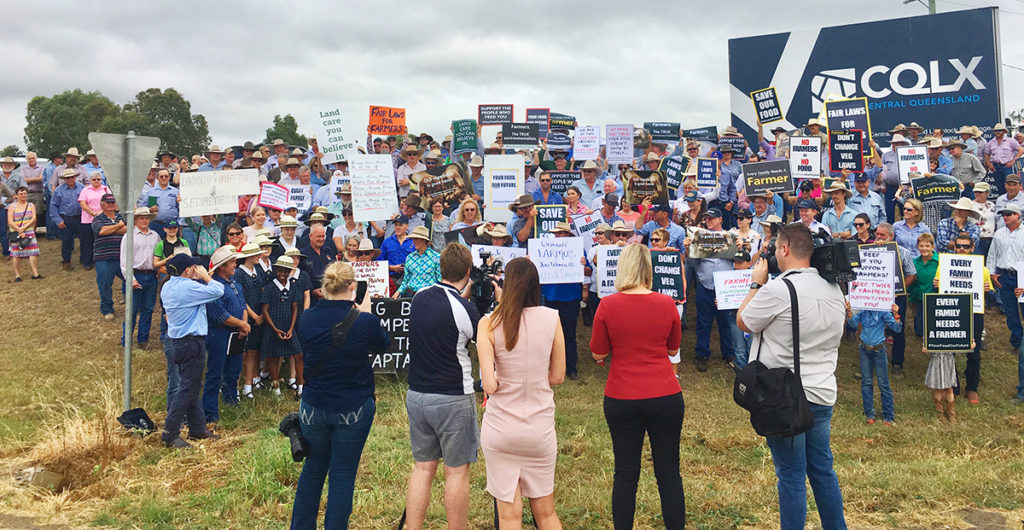
View from up in the crowds…
And all too soon, it was time to head in. To the huge stadium around the sale ring, above which the committee were seated along a long table facing the crowd, with empty seats waiting for those scheduled to ‘appear’.
The crowds kept building as the speakers began filling seats, addressing the panel, drawing applause, fielding questions from the committee. There is a great overview of speakers in the Queensland Country Life summary here.
Dr Bill Burrows, a researcher for 40 years with the Qld Dept of Primary Industries, was particularly strong and insightful. Josie Angus, who runs a ‘vertically integrated’ beef business with her husband Blair, selling to countries right around the world, was also fantastic, nailing statistics relevant to their own business and across the state.
I did okay. I popped my ‘Serious Amanda’ face and voice on, and read my points a little nervously (I did have 600-800 people listening carefully behind me), and hope my points came across alright. My speaking notes looked like this:
I have been at both ends of the food production line – as a producer and as a urban supermarket consumer (during my city years) – and I understand:
- the vastly different viewpoints (and the prejudices) at each end.
- how easily people become disconnected from the source of their food,
- also been knee-deep in the bureaucratic process AS a bureaucrat
- understand the pressures often brought to bear on politicians.
I have asked myself 2 key questions:
- What are farmers & other lobby groups doing here today?
- What are the committee (and by extension, the government) doing here today?
This issue has become so combative, so polarising, so US versus THEM, that it was really important to strip this back to those core questions. And in digging down through the rhetoric and the misinformation and emotive imagery and the yelling …. what it boils down to is this core truth:
WE ARE ALL IN THIS TOGETHER :
- we all EAT
- we all need FIBRE
- We ALL need our ECOSYSTEMS to thrive (farmers depend on healthy environments and soils to create healthy crop and grasslands too).
The real truth is that vegetation management:
- mostly very selective & maintains timbered areas.
- is expensive & cannot always be done in set timelines
- must be done with the long-term future in mind
- is DIFFERENT for every different landscape & tree type …
The main question we must all ask is this:
WILL THESE AMENDMENTS ACTUALLY PROVIDE the OUTCOMES hoped for? i.e. Will they:
- provide a boost to biodiversity, a safe haven for wildlife?
- prevent erosion?
- Provide the absolute answer to saving the reef?
- Allow for reasonable and ongoing food and fibre production to meet growing Queensland, national and international (export) needs?
Believe the answer to ALL FOUR of these questions is NO. Because…
- REGROWTH is not the same as original remnant vegetation (much thicker, more hazardous as fire danger both to animals and humans).
- GRASS SHOWN to be better at erosion control than trees, which often have bare dirt at base.
- RUN OFF from huge numbers of cultivated areas, especially in inland areas, will carry zero residue.
- MORE MOUTHS – LESS PRODUCTIVE LAND. (Doesn’t add up!)
I challenged the government with some questions on notice:
- With the ever-growing population in this state building their homes across best food production areas in South-East Queensland, how does the government plan to feed this increase in people when there will clearly be a loss of food and fibre production created by these amendments?
- How will the government compensate farmers for loss of production as grasslands and area under cultivation diminishes?
- How will the government compensate farmers for loss of value on their land (on which many have substantial loans based on current PMAVs)?
- What action does the government plan to take when erosion actually ends up worse because of these amendments ? Will it undertake rehabilitation programs to re-establish grasses to better hold the soil?
- Will the government compensate farmers for further loss of arable land caused by this erosion?
- How will the government protect stock and wildlife (and potentially humans) from increased fire danger, caused by excessive vegetation? (A danger clearly illustrated by every major tragic bushfire in Australia)
I also spoke about how suicide in rural Australia was almost twice that of urban areas – and how we just cannot afford to add even more pressure, how we cannot afford to lose more farmers.
I watched the panel closely as the others addressed them… I am hopeful that we were getting through to at least a couple of them. I know subsequent hearings in Townsville, Longreach and Charleville pushed home many of these points, and made hundreds more. There is one more remaining hearing to be held in Cairns on April 13.
What I REALLY hope, more than anything, is that this is the beginning of a move towards new relationships – the somehow we rise above politics when it comes to our food.
We really love producing food for tables in our state, our nation, and internationally. Queensland farmers proudly grow some of the cleanest, greenest food and fibre in the world. We produce 1/4 of Australia’s food! Sustainably.
And while it was amazing to be part of a group of people willing to stick their neck out, and make their voice heard, I just hope that we don’t have to do it too often. I hope some listening and some ‘responding’ happens. Soon.
Cause farmers like me.
Farmers like my friend Viv…
Farmers like my friend Ainsley…
We’d rather get back to the business of caring for our land, and growing Australia’s food.
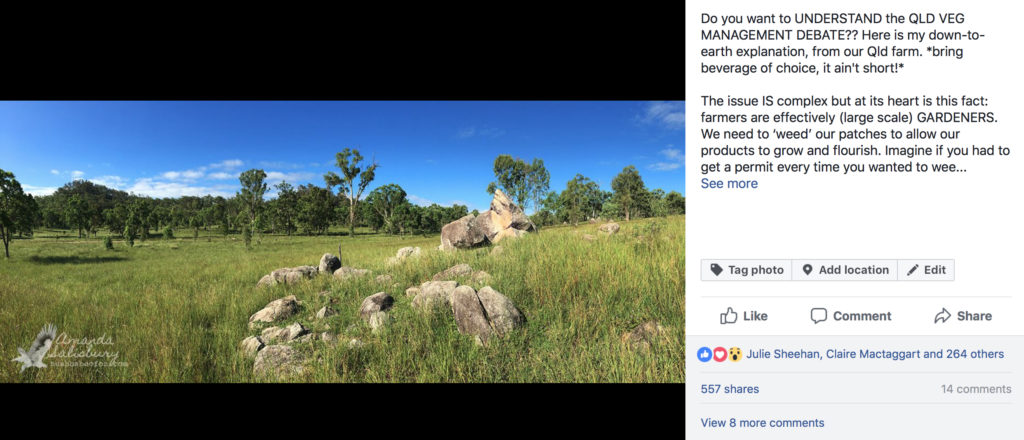
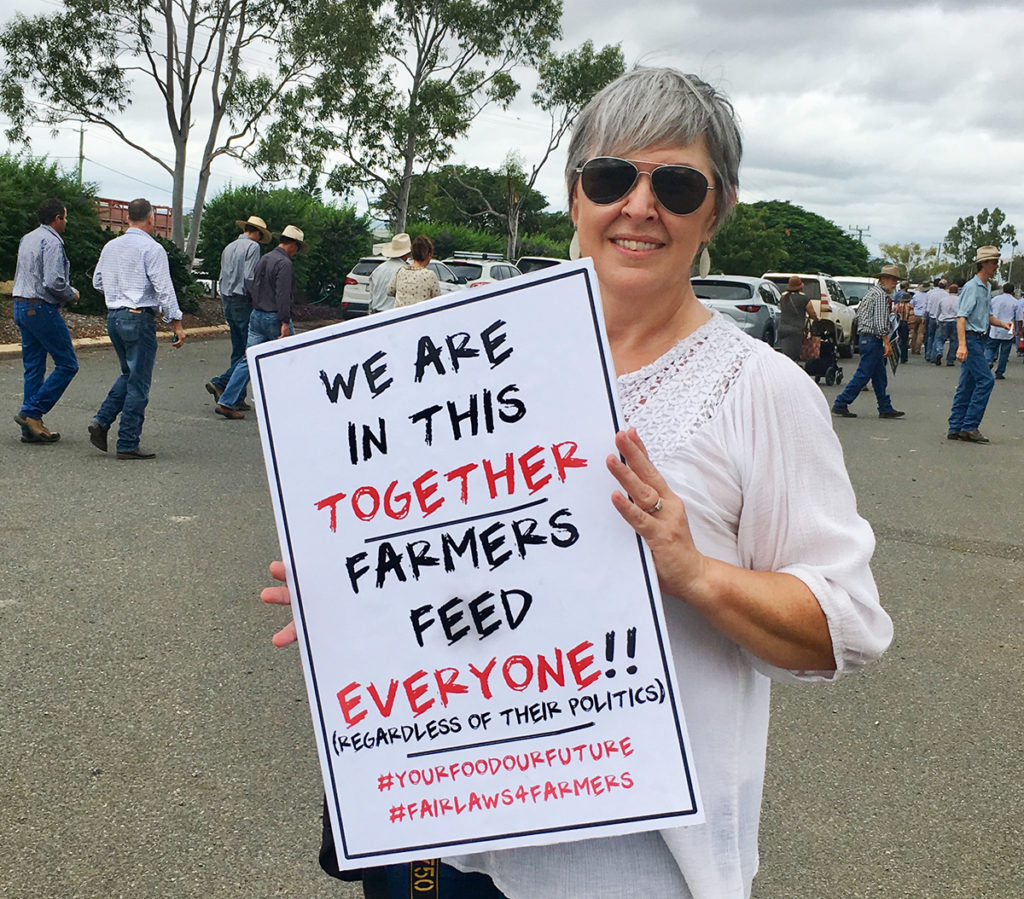
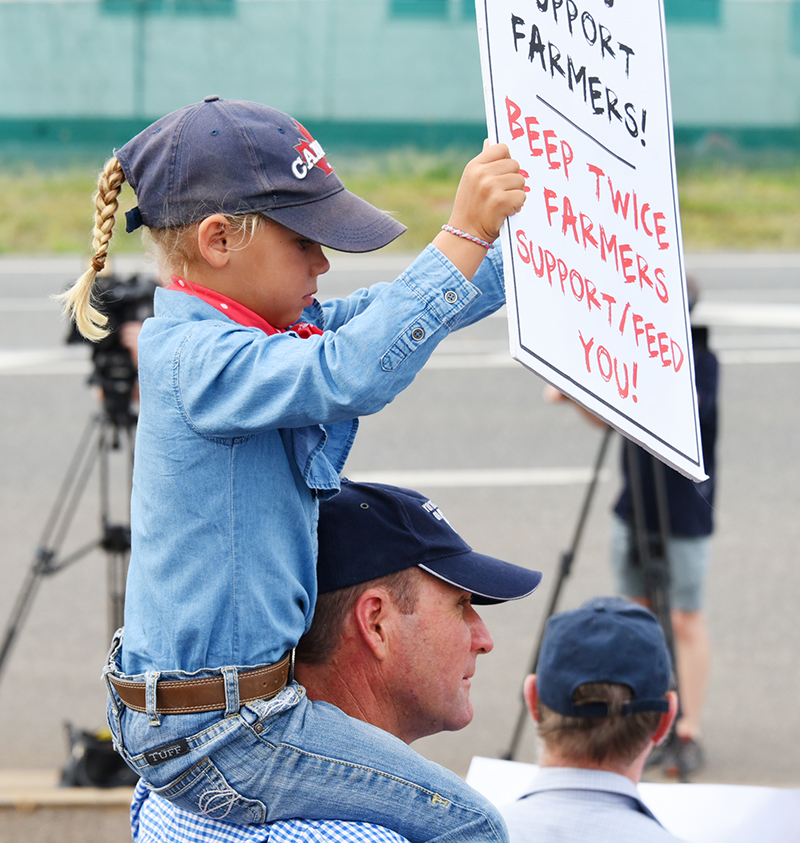
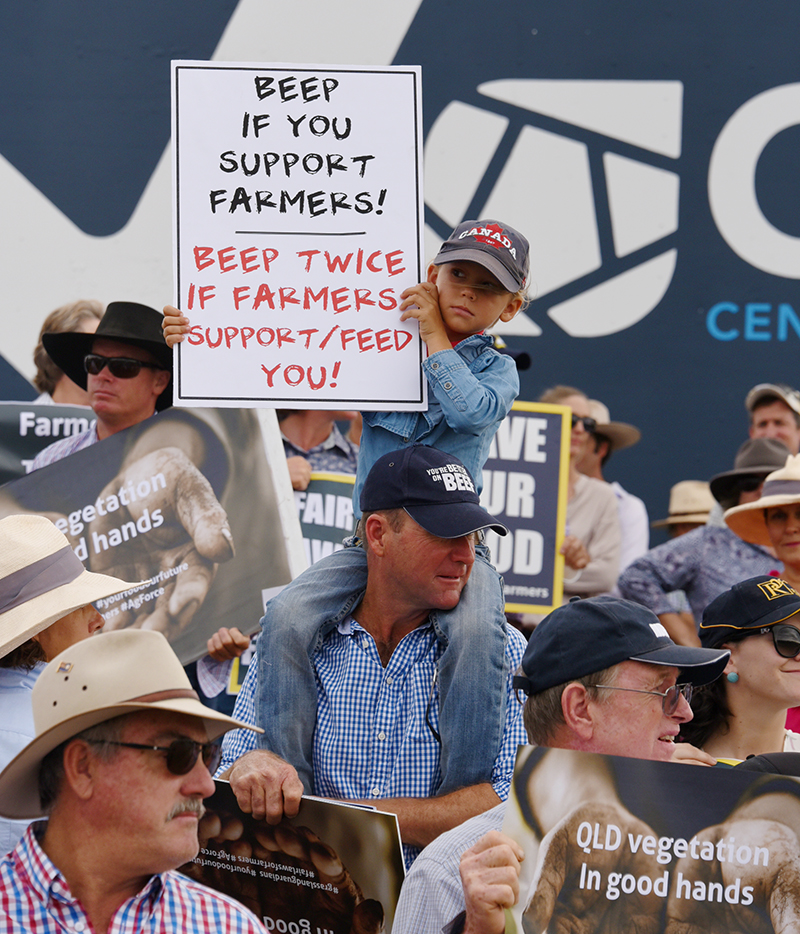
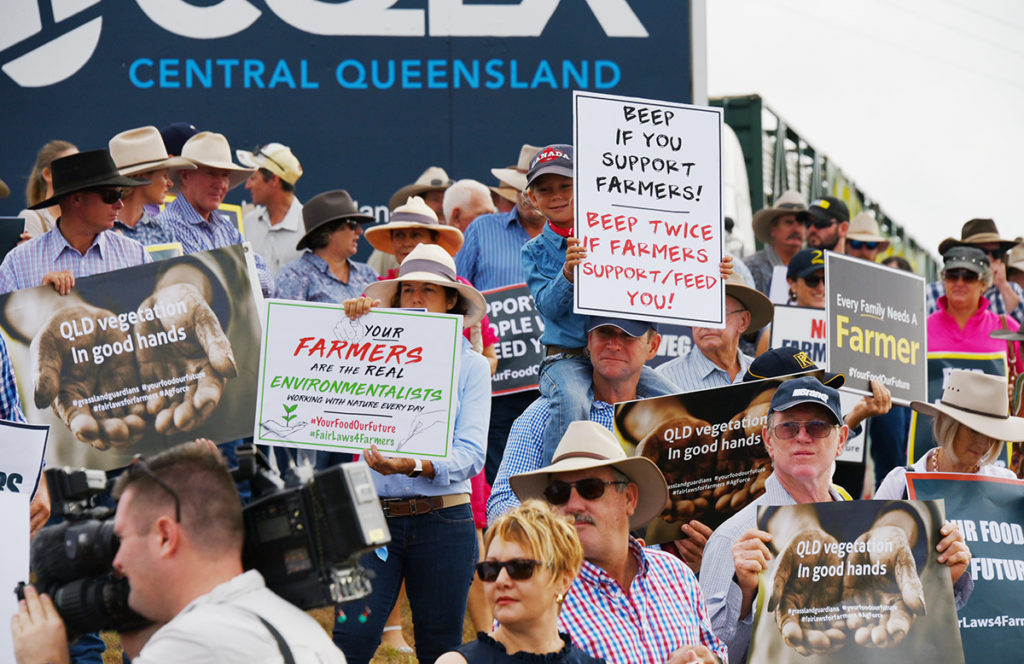
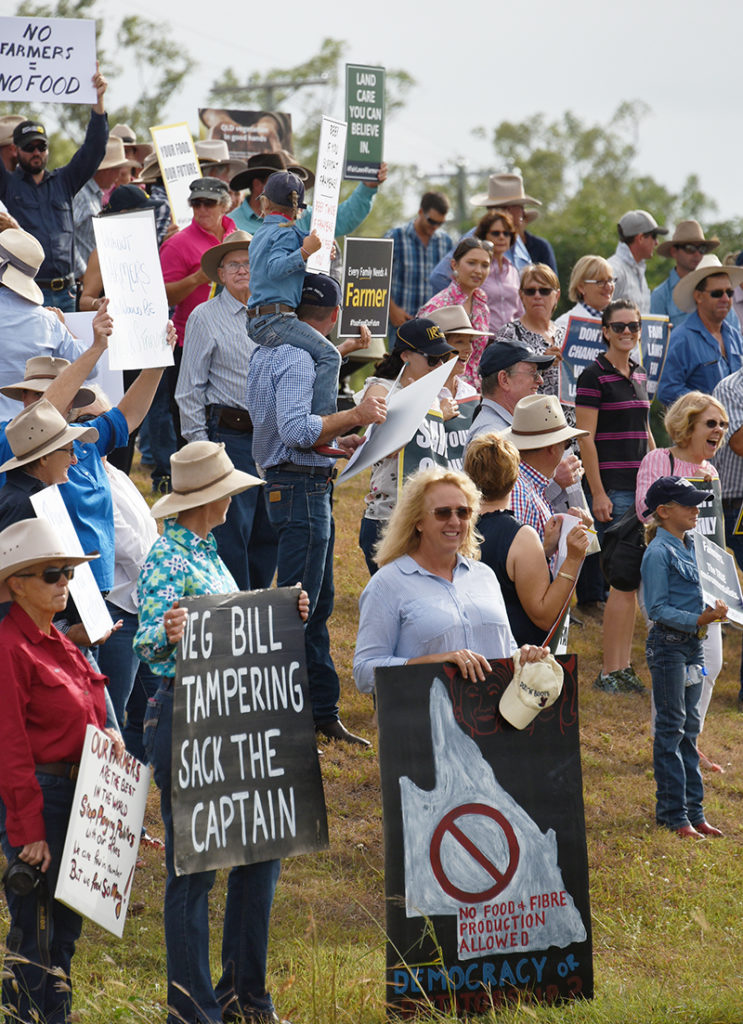
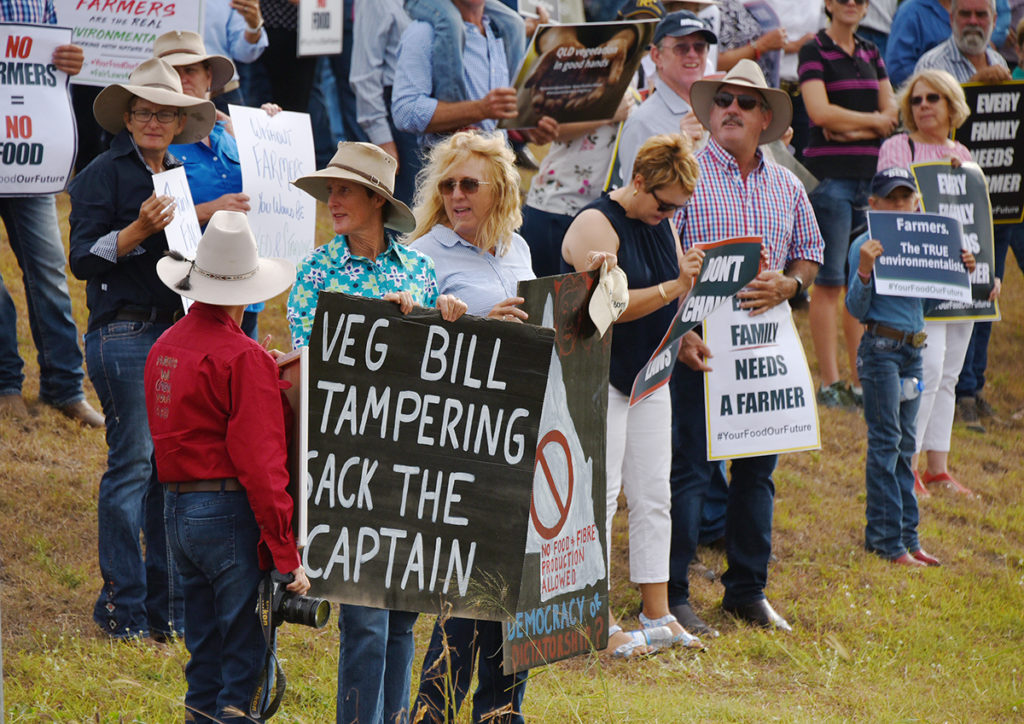
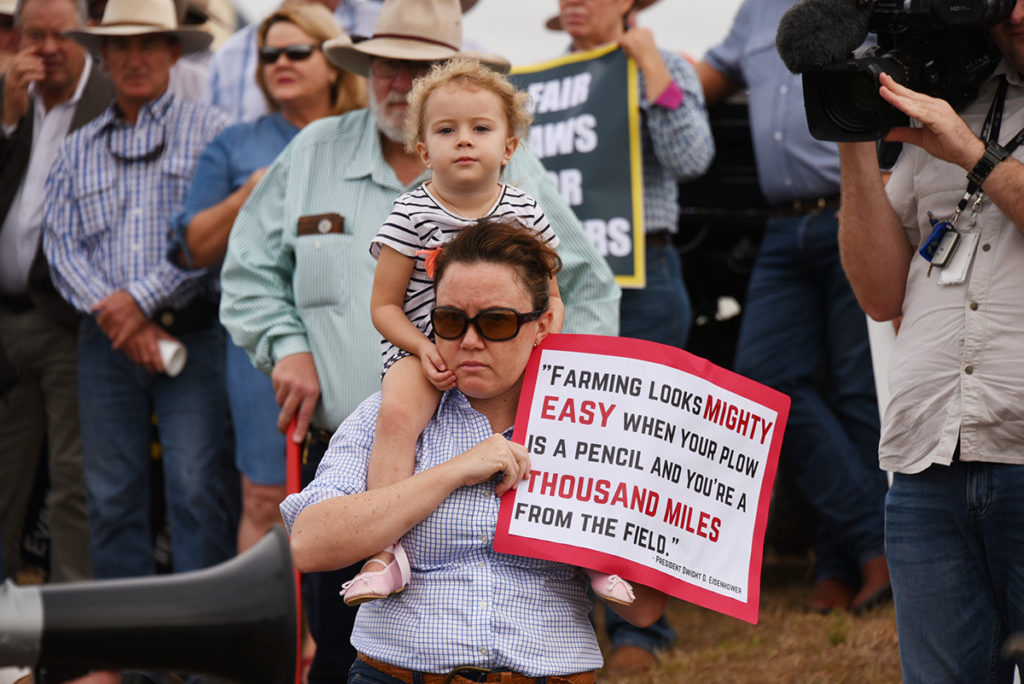
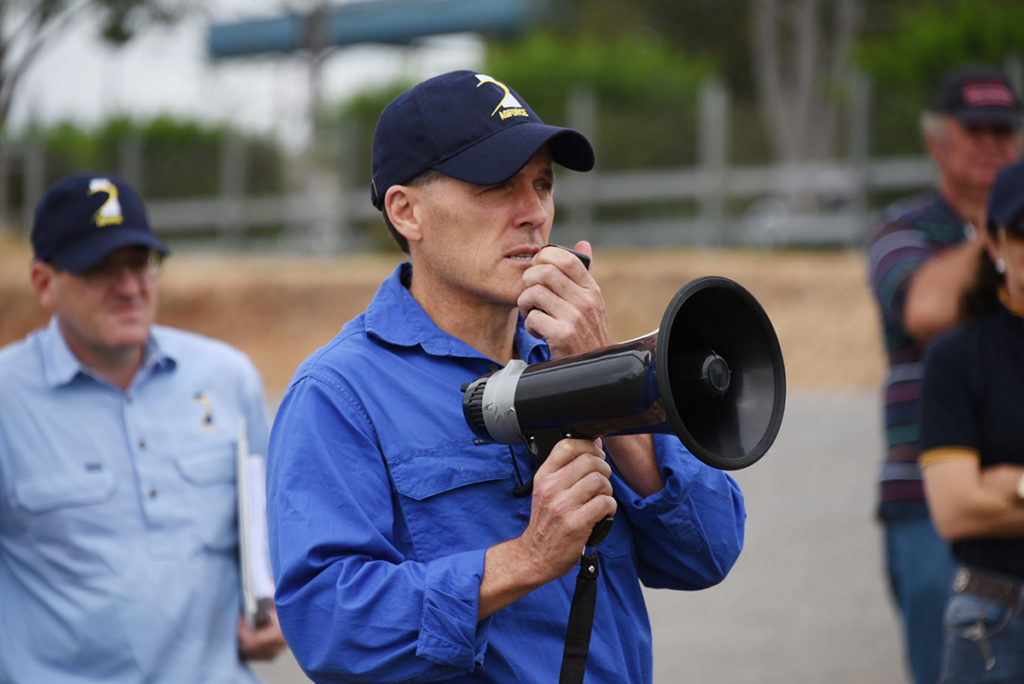
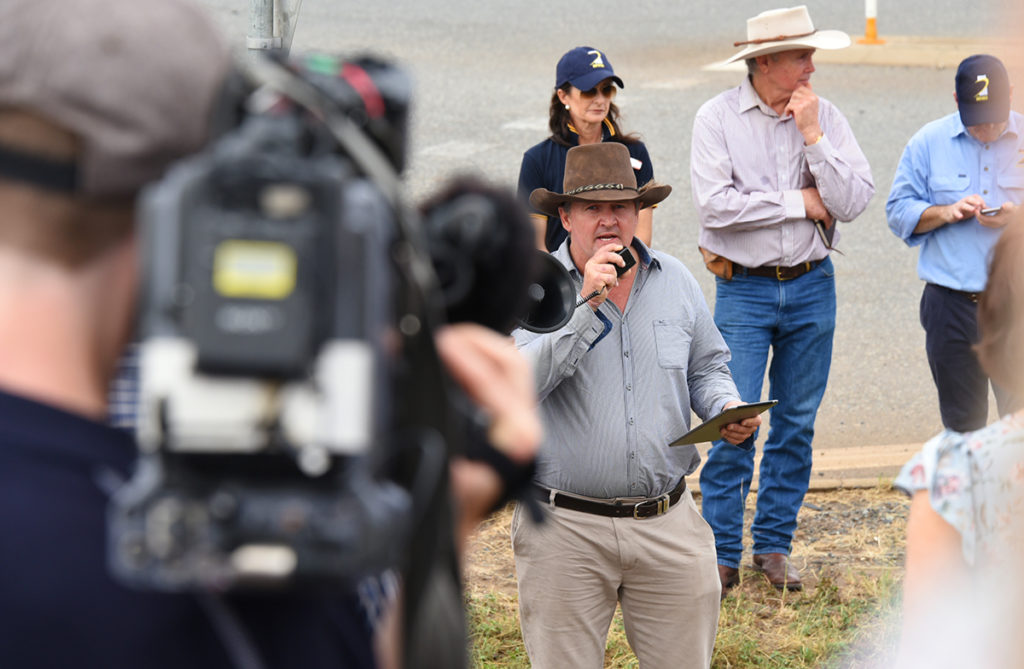
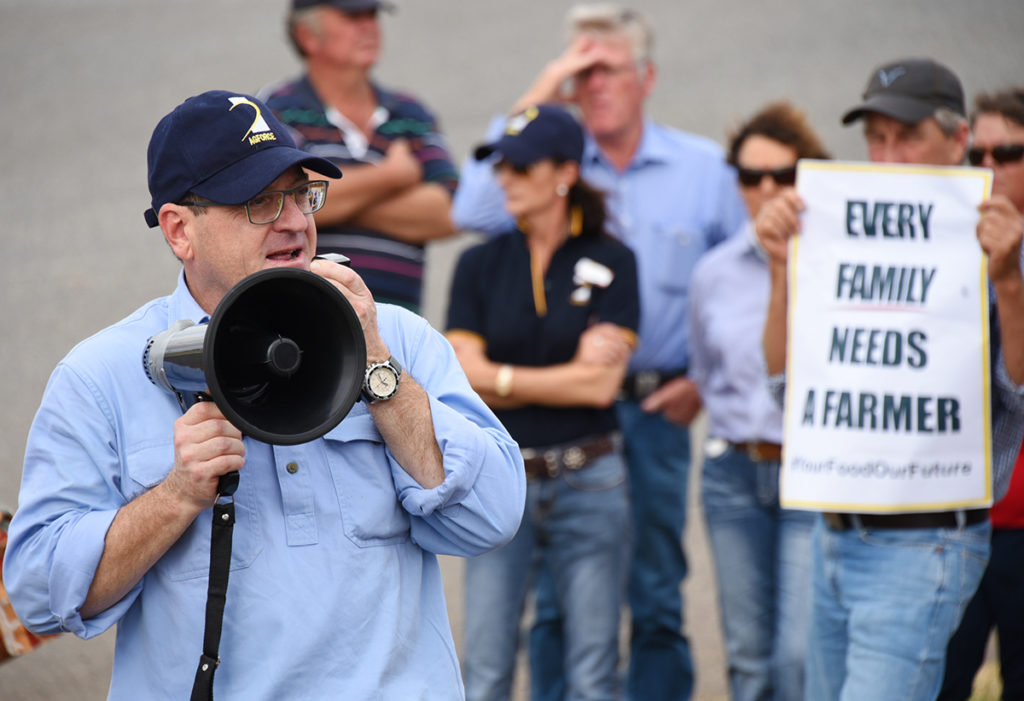


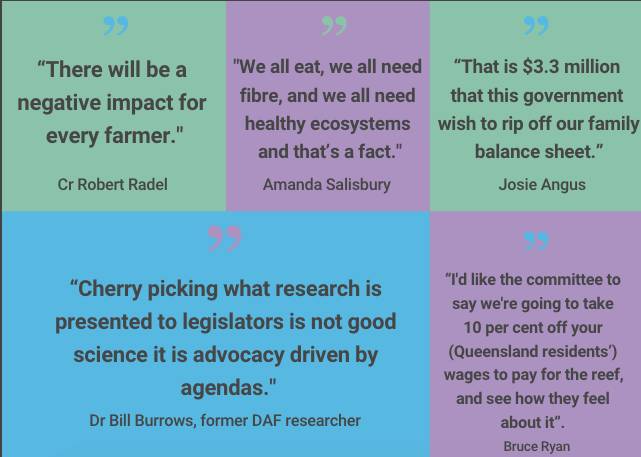
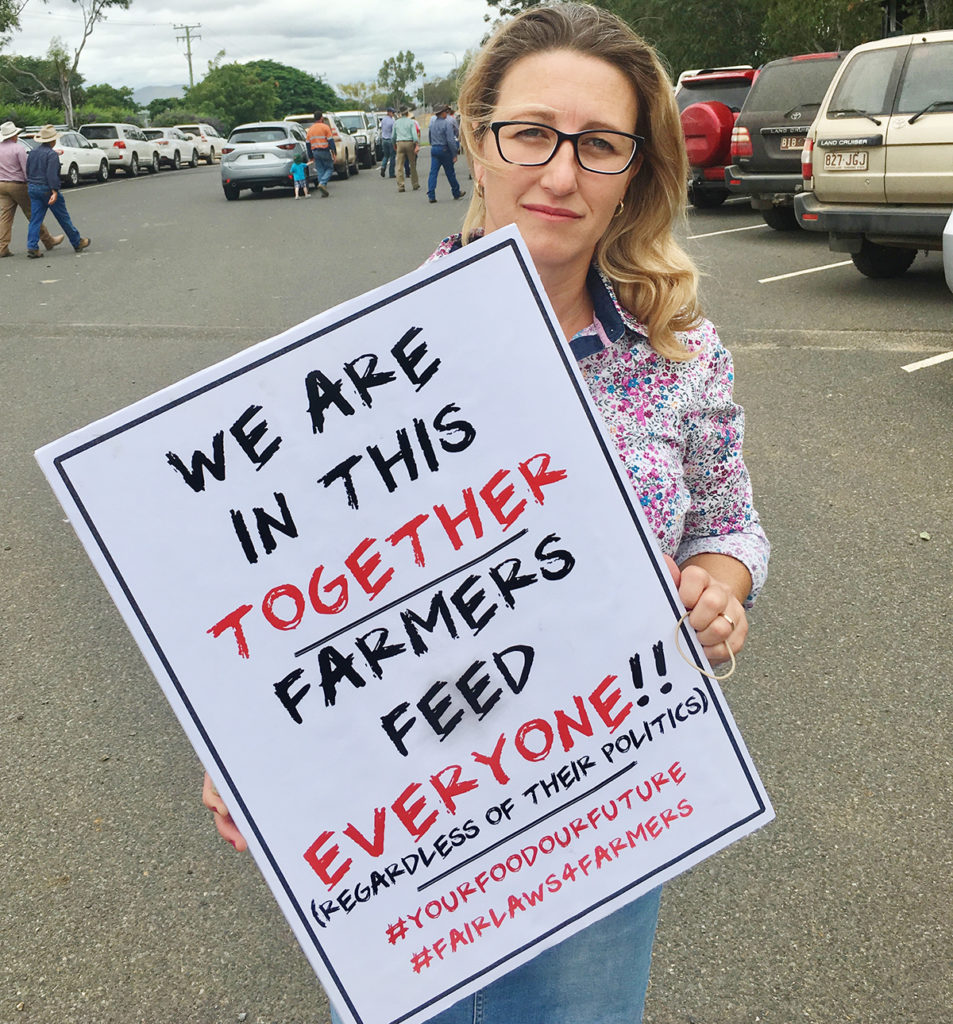
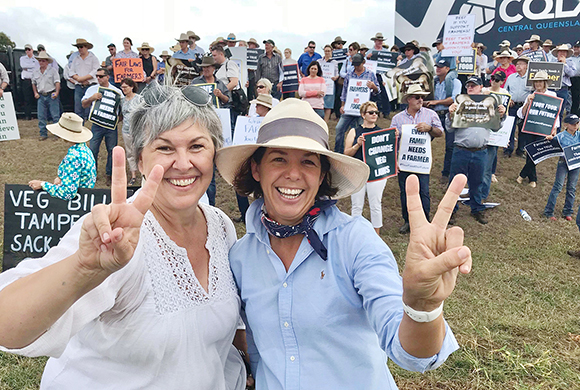

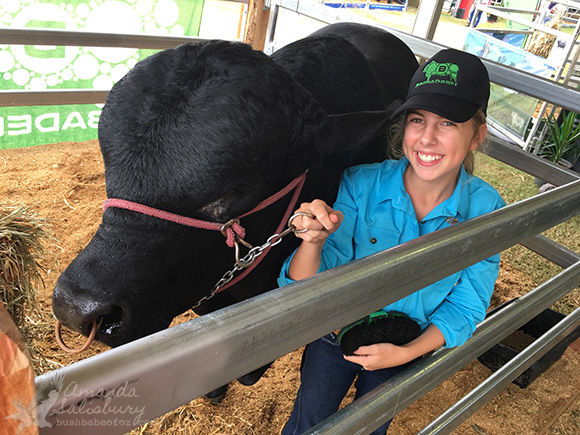

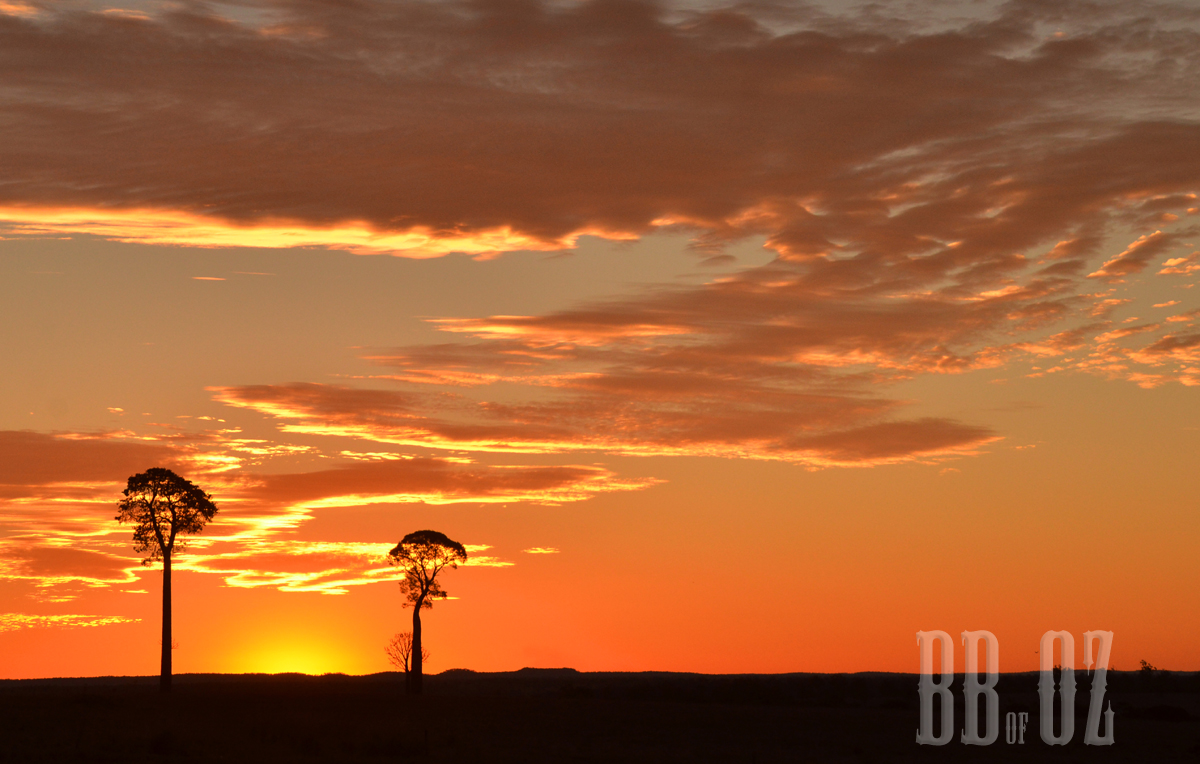
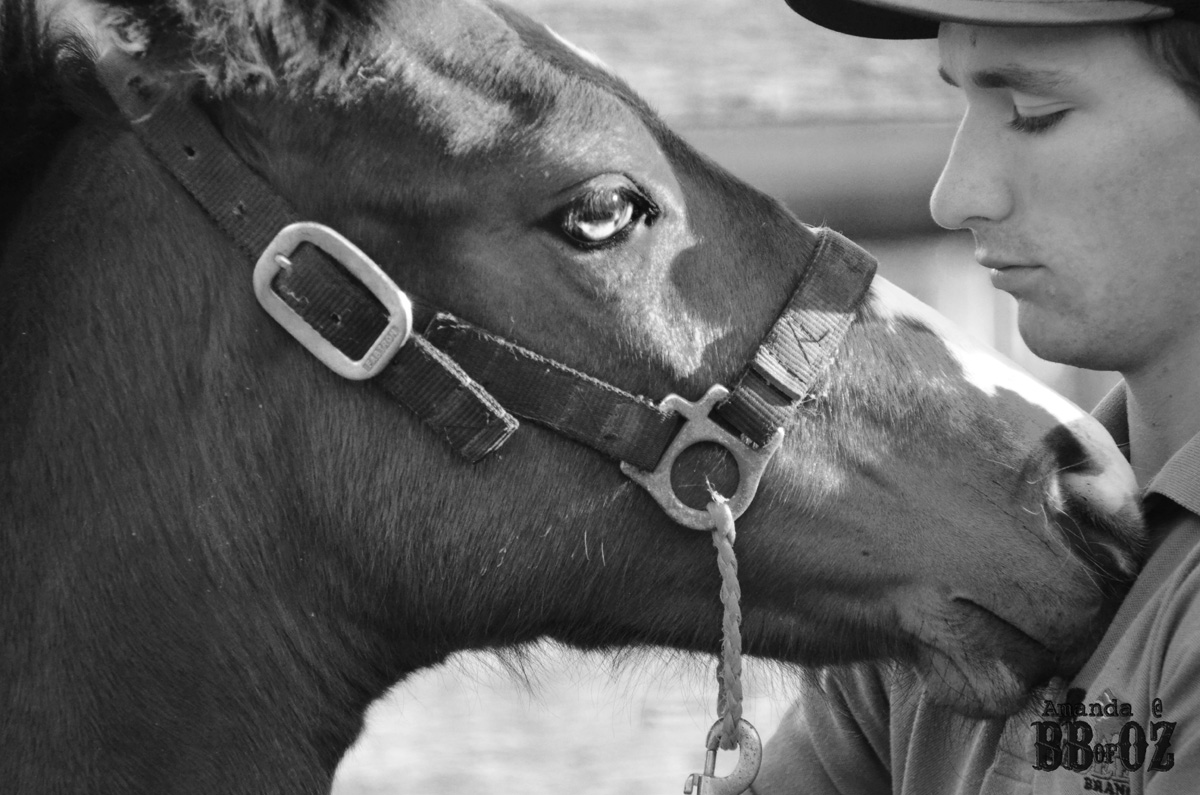
8 Comments
Kelly
I like that sign with the plow as a pencil line…
Too often in government it’s those who have no idea making the policies for those who do.
Kelly´s last blog post ..Earthly Remains by Donna Leon
BB of Oz
Yes… not for lack of advice either. :-/
Cecil connolly
Farmers are the backbone of our country. Look after them. Don’t destroy them.
BB of Oz
Thanks Cecil… we don’t really get why we are having to fight so hard, but rest assured we won’t go down without a heck of a fight!
Wendy Wilkinson
So well written & presented & it’s not just the farmers who will be affected either. Once the Farmer’s production is decreased they will no doubt have to make employees redundant so the employee will undoubtedly be forced to move away to find work. Their children will go with them, so the numbers in the schools will be reduced which in turn will mean fewer teachers required. The local shops will have less people to buy their products so they in turn will be forced to put off staff…..it all has a ricochet effect! & the small towns start to die…..
BB of Oz
Yep… that’s what I kept trying to point out. If you EAT you are affected… 🙂
debby
Very proud of you sistah!
BB of Oz
Thanks hon!! xx